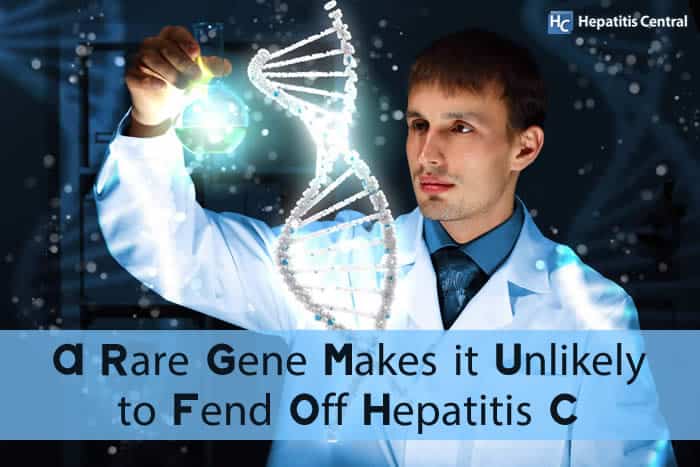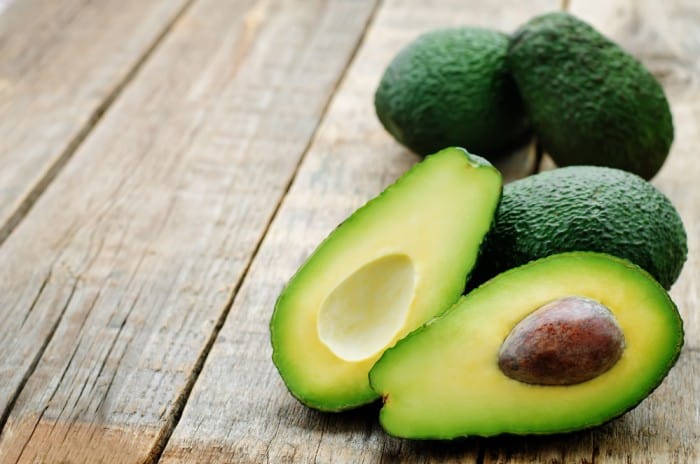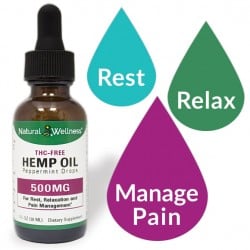A Rare Gene Makes it Unlikely to Fend Off Hepatitis C


In a recent study published by PLOS | Pathogens, Dr. Connor Bamford and John Mclaucland from the Centre for Virus Research shared their observations of a rare gene and its relationship with our liver, HCV (hepatitis C virus), and our ability to defend against infection (1).
In examining the gene in question, IFLN4, across all known groups of people, and even chimpanzees, Bamford and McLaucland discovered that only pygmies (a small population of hunter gatherers in Central Africa) and the chimpanzees produced the rare version of the gene that adequately inhibits HCV infection. Everyone else seems to produce a weaker version of the gene (1).
The Gene Details
Interferons are antiviral molecules produced by our liver for the purpose of fighting off infection. More specifically, the interferon produced in order to fight HCV (hepatitis C virus) in the liver is called a “lambda” interferon; and, even more specifically, researchers found a single lambda interferon gene called IFLN4, which they found to be associated with an increased chance of warding off a prolonged, or chronic, HCV infection (4).
You and Everyone You Know
Basically, if you’re not a pygmy, you and everyone you know have significantly weaker IFLN4 interferons and, thus, a higher risk of developing HCV (1).
How our interferons evolved to be weaker is still a question that researchers and experts are grappling with, but understanding why could be the next step in unlocking the mechanisms of a potential HCV vaccine.
Closer to a Hepatitis C Vaccine?
While there are other organizations and teams of researchers acknowledging the need for a HCV vaccine and diligently working towards one, we’re still a long time away from a widely available vaccine (6).
While the experts are busy answering the important questions, there are still a handful of practical and actionable things within our control that can seriously help defend against HCV.
In the spirit of being good to our bodies and using natural remedies, below are a handful of our favorite healthy and natural ways to bolster liver strength, including:
- Diet and exercise
- Milk thistle
- CBD oil
- Turmeric
- NAC
- Green tea
- Omega-3s
Diet and Exercise

Lifestyle choices are often the more cost effective and impactful. Eliminating processed foods, cholesterol, and alcohol will not only greatly reduce your risk of cardiovascular disease, but it also eliminates a significant strain on your liver to process those substances (5).
Moreover, find out why exercise is a must if you are battling hepatitis C.
Supplements – Especially Milk Thistle
The world of natural supplements can often feel daunting, unsubstantiated, or just plain confusing.
In looking for a supplement to help your liver, whether you’re dealing with HCV or just trying to be healthy, do your research. Consult your doctor about anything that may interact adversely with any pre-existing conditions or medications.
The FDA offers this very helpful guide of things to look for in your supplements. One big concern is ensuring that whatever supplements you take aren’t supplying you with more than the recommended daily dose of any one thing. Overdoing it can sometimes have the ironic side-effect of putting more stress on your liver by forcing it to process and flush the excess.
One extremely powerful supplement for liver support is milk thistle. Milk thistle is an ancient natural herb that protects YOU against alcohol, pollutants and other toxins harmful to YOUR liver, fights inflammation and helps detoxify your body.
Cannabidiol / CBD Oil
CBD oil is a non-psychoactive compound found in cannabis and hemp with many health benefits. This means it does not give the high feeling associated with smoking marijuana, but does come with a handful of health benefits.
Our pro tip would be to look for CDB Isolate and CBD products derived from hemp, which by law are required to contain less than .3% THC.
These are the two types of CBD.
- CBD Isolate – This is pure CBD with no THC. It is more expensive to produce, since an extra extraction process is required during production to separate out the CBD from the THC.
- Full Spectrum CBD – This contains CBD and low levels of THC and terpenes. Terpenes are aromatic compounds found in the oils of all plants.
With CBD now made legal under the 2018 Farm Bill, understanding how CBD affects your liver has never been more relevant. Leading research indicates that the “potential for cannabidiol for the treatment of viral hepatitis” is great. As a natural anti-inflammatory agent, CBD is recognized as being very valuable in:
- managing pain
- neurological conditions
- cancer symptoms
- as well as promoting antiviral activity as it relates to HCV and the liver.
While more research is necessary and certainly coming, the green wave is undeniably here, and CBD is proving itself a valuable asset in the wellness tool kit.
Herbs and Antioxidants – Including Turmeric, NAC and Green Tea
In addition to milk thistle and CBD, a handful of herbs, foods, and supplements contain liver-fortifying properties.
Turmeric, for instance, isn’t just an essential component to any curry, it offers powerful anti-inflammatory benefits.
Another powerful antioxidant that’s easy to incorporate is NAC (N-Acetyl L-Cysteine). NAC works by neutralizing free radicals, and detoxifying the body and the liver of harmful substances.
Similarly, green tea can help flush our liver from toxins. But, be careful, the recommended daily dose is no more than 180mg per day which equates to roughly 3-7 cups of green tea. Overdoing the green tea could put your liver in hepatic shock. Too much of anything is a bad thing, especially when it comes to herbs and antioxidants.
Omega-3s
Omega-3s are a secret weapon in the fight against liver disease.
Research on omega-3s and fatty acids touts the “beneficial effect of n-3 PUFAs (Omega-3 fatty acids) in optimizing liver fat, liver enzyme levels (GGT), and blood lipid levels (TG, HDL) in patients with NAFLD and we guess n-3 PUFAs may slow down the progress of NAFLD.”
If omega-3s have that powerful of an effect on NAFLD (non alcoholic fatty liver disease), logic would indicate omega-3s could have a positive impact on other hepatic diseases.
Foods high in omega-3s are:

- avocados
- fish and most shellfish
- eggs
- loose leaf greens like spinach
- Brussels sprouts
- nuts and oils like canola oil or those derived from nuts.
Conclusion
We know, it’s a bummer to be a part of the 99.99 percent of the population more susceptible to HCV, but that doesn’t mean you can’t do anything. Diet, exercise, milk thistle, turmeric and more can help support and strengthen your liver.
Always consult your doctor before changing routines or diet, and figure out what works best for you.
1. https://journals.plos.org/plospathogens/article?id=10.1371/journal.ppat.1007307, PLOS | Pathogens, By Connor Bamford and John McLaucland, Published October 11, 2018, Retrieved May 19, 2019
2. https://twitter.com/cggbamford?lang=en, Twitter, Profile of Connor Bamford, Retrieved May 19, 2019
3. https://twitter.com/McLauchlanCVR, Twitter, Profile of John McLaucland, Retrieved May 19, 2019
4. https://www.sciencedirect.com/topics/neuroscience/interferon, Science Direct, “Interferons,” By Ernest Borden, Published 2008, Retrieved May 19, 2019
5. https://keck.usc.edu/a-diet-high-in-fat-and-cholesterol-can-lead-to-life-threatening-liver-disease/, Keck School of Medicine of USC, “A Diet High in Fat and Cholesterol Can Lead to Life-threatening Liver Disease,” By Erica Rheinschild, Published December 20, 2018, Retrieved May 19, 2019
6. https://www.healio.com/hepatology/hepatitis-c/news/online/%7Bd566711c-3892-47f2-a117-e51bbbaf3fa4%7D/hcv-vaccine-using-chimp-adenovirus-shows-promise-in-healthy-humans, Healio HCV Next, “HCV vaccine using chimp adenovirus shows promise in healthy humans,” Published April 12, 2019, Retrieved May 19, 2019
7. https://www.fda.gov/food/information-consumers-using-dietary-supplements/tips-dietary-supplement-users, Food & Drug Administration, “Tips for Dietary Supplement Users.”
8. https://www.ncbi.nlm.nih.gov/pmc/articles/PMC5330095/, Pharmacognosy Research, “Potential of Cannabidiol for the Treatment of Viral Hepatitis,” By Henry I. C. Lowe, Ngeh J. Toyang,and Wayne McLaughlin, Published Jan-March 2017, Retrieved May 19, 2019
9. https://www.drugs.com/npp/green-tea.html, Drugs.com, “Green Tea,” Last updated on Feb 12, 2019, Retrieved May 19, 2019
10. https://www.ncbi.nlm.nih.gov/pmc/articles/PMC5019889/, Gastroenterology research and practice, “Effects of Omega-3 Fatty Acid in Nonalcoholic Fatty Liver Disease: A Meta-Analysis,” By Wenxia Lu, Chuanyong Guo, Published August 29, 2016, Retrieved May 19, 2019








